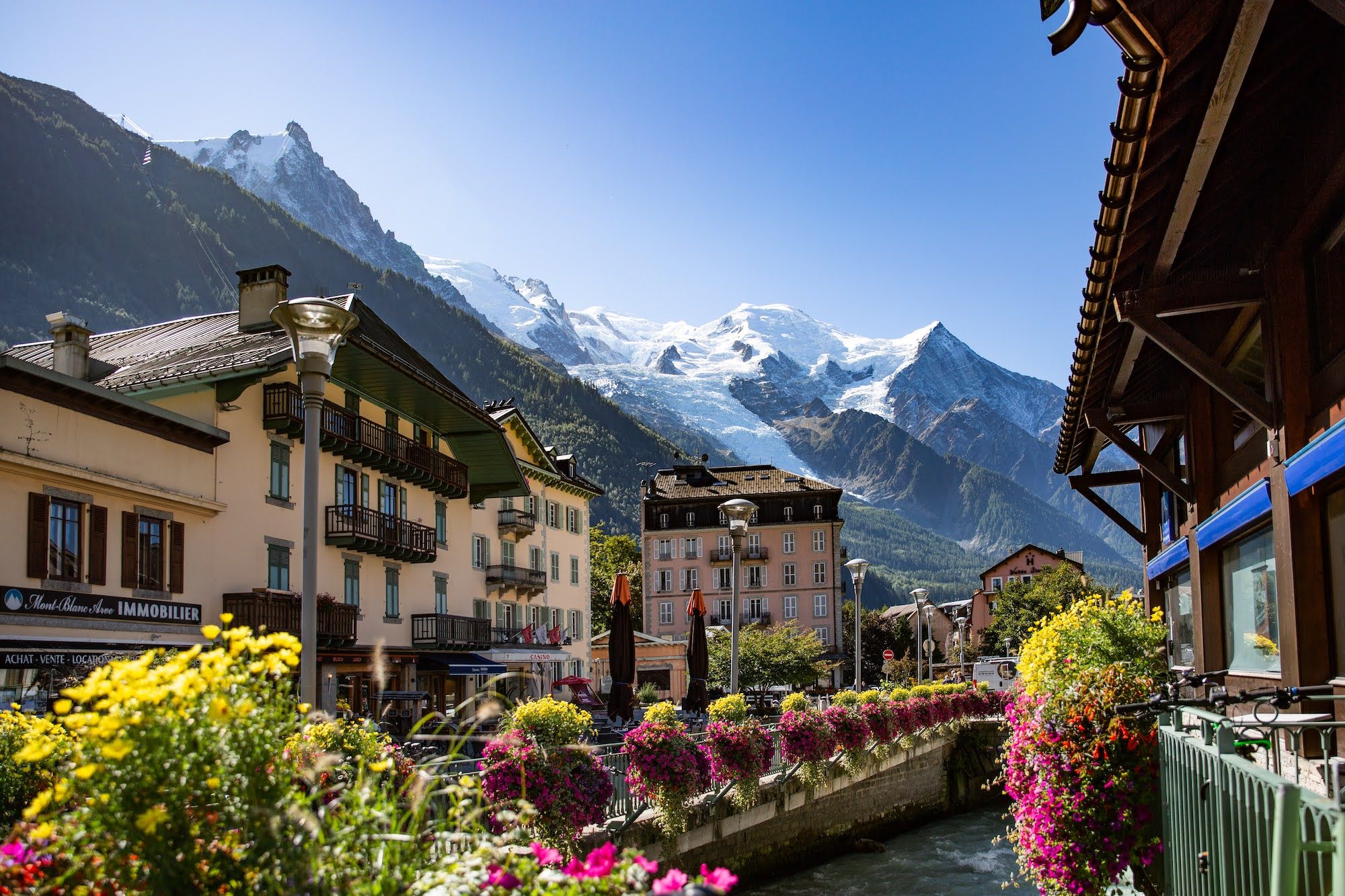Organizing remote team meetups: 5 essential things to consider

We're dedicated to working asynchronously whenever possible at Float—and we've written a lot about it! Our team works remotely across 20+ countries, and each person chooses to design their workday around their deliverables and personal preference. We're thriving in this work mode and won't be changing it any time soon.
But that doesn't mean we don't value meeting IRL.
In fact, we're incredibly intentional and invested in our annual team meetups (which had been on a two-year hiatus because of the pandemic). The challenges involved in organizing a meetup for a global team might make many companies think twice. It certainly is a logistical nightmare and a significant company expense. So why do we bother holding one at all?

Meetups are essential to our async work culture
We have always been remote, so the systems, processes, and tools we use are all set up to support us in working together effectively and in an asynchronous way. We do this purposefully, allowing each other the autonomy and trust to work in this way.
This is exactly why our annual meetup is so important to us. It's a unique opportunity to get to know each other and build trust, which is key to collaborating remotely throughout the year. The time we spend in person allows us to continue to strengthen our relationships.
And we're not ones to shy away from the challenges of organizing these meetups! We take a deliberate approach to selecting suitable locations, communicating well, and being inclusive.
Here are five essential things we did (and you can do too) to make the meetup a success.
1. Find a location that fits your team and unique criteria
Our meetup is predominantly a chance for our team to connect, socialize, and be inspired by the work that we are doing. The location and itinerary should allow for all this; in particular, we were looking to provide organic moments for our team to interact.
Our first step was to map out the locations of each of our team members and group them into regions—such as APAC, EMEA, etc. What we found was that almost 40% of our team was located in EMEA, so that was a natural area to consider for the meetup. There were also three important considerations we took into account:
- Travel is a privilege. We wanted to gather the team together with as little travel time, miles, and carbon emissions as possible. We also kept in mind that some folks require visas. Our ideal scenario is that everyone who wants to come can, with as little stress and negative impact to them, their families, and the environment as possible.
- Our team size matters. Our team has tripled in size since our last meetup in 2019! Unfortunately, our options for venues shrink as our team grows. We wanted to leverage the fact that we are (just!) under 50 people so we can take advantage of being able to stay in a more boutique, relaxed accommodation and avoid big hotels—for now.
- The location has to be well-serviced and not too far from a major airport. Events involving a fully distributed, global team mean that many of the team will be traveling by plane. To make the best use of our team's time, we tried not to get too far away from a major airport or have them take multiple modes of transport to get there. This saves time and ensures we have necessary services like hospitals and the internet! We want our team to feel relaxed and safe.
Another good practice is to ask your team where they want to go. We did this and got some exciting and unique recommendations from our team. Talk to your friends. Instead of a traditional event recce to venues, you'll need inspiration and reviews from the people you know and trust.
With these considerations, we created a shortlist of locations and ultimately selected Chamonix for our 2022 Float meetup!
We're already spitballing ideas and gathering preferences from our team for next year's meetup location.

2. Get to know the area well before the event
If you’re able to, do a recce of the venue and area. I’m located in Australia and couldn’t justify a 24-hour trip to Europe, so I engaged a local event company to help me understand and navigate all the local nuances that could impact our event. This was invaluable.
If you have more than 20 people coming to your event, a friend or team member that is local to the area or a DMC (Destination Management Company) will be your best friend. We worked with Ten80 Events and they were crucial to the success of our meetup.
This year, we made a decision to book out a modernized, chalet-style hotel for our team. Booking the hotel exclusively enabled us to have a village feel to our event, and our team was able to interact with each other throughout the hotel as they crossed paths at breakfast (or made their way to yoga in the morning🧘♀️). It was like a condensed office experience—without the water cooler!

3. Travel off-peak
There are many reasons to hold a meetup during the off-season, but here are a few favorites:
- Avoid school holidays and popular team holiday periods where we can. This is the most important reason we chose to hold our meetup between seasons! We are big on encouraging our team to take time off away from Float. It’s important that we don’t interrupt our team’s existing travel plans with their loved ones.
- Plan for a large group more easily. We provide all planned meals, transfers, and activities across the two-day meet. Going during a hectic period can make it almost impossible to plan the schedule and do what we want to do due to the limited availability of accommodations, venues, and transport capacity. If your team is larger than 30 people, I strongly suggest you travel during an off-peak time.
- Avoid the increased prices and busyness of the tourist season. This enabled us to do more with our budget and get way more flexibility with our accommodations.
- Aim for the best possible weather. We find that not everyone loves the extreme heat or cold during traditional holiday seasons, so we chose to travel when the weather might be milder and more pleasant for everyone. Anything can happen with the weather, but try to avoid extreme weather as much as possible.

4. Form a plan to disseminate event information
Once we nailed all event details, we needed to ensure that our team knew what to expect and what they should do to prepare for the meetup. Here's how we did that.
- Create a source of truth for event planning and logistics months prior. We used Notion as a dedicated event page for our event. This was a one-stop page with information and links to the schedule, location, visa details, and travel policies. As part of the event page, we had a Team Travel Plans page, where our team added their information—such as arrival times, flight numbers, and vacation plans. We encouraged everyone to make a holiday out of it. Storing the information in this way helped the smooth planning of transfers in and out of the event, and allowed some of our team to plan trips together on either side of the meetup.

- Handle Q&As plus information sharing. You will get a lot of questions! Especially with a fully distributed remote team, there will be many anomalies with a team coming together from all over the world. We opened a dedicated Slack channel to share organizer updates on the meetup. It also allowed our team to share information between themselves. This was the best part, as our team shared invaluable information, and it helped build anticipation.

We used this channel to collect the information we needed from the team, too.

- Send more detailed information closer to the date. Once you are within three weeks or so from the event, plan to share the finer details (such as what to pack and a more detailed itinerary). Event information can be a lot to take in. Avoid spamming your team with too much detailed information before it’s absolutely necessary. We recorded a Loom to share with the team as part of our Roadshow event so they could watch it in their own time and get prepared to travel.

5. Keep learning
At Float, we love to experiment and learn about what it means to work remotely. Our meetup is no exception, so we will continue to iterate and evolve our meetups each year to make the best use of our time together.
To help us in this process, we will send out a post-meetup survey with targeted questions on different aspects and then prepare a post-event report. The feedback we’ll get will help us improve next time and consider things we didn’t consider before. It's best to send this out within a few days of your event finishing, so you can capture the buzz and feedback while it’s still top of mind.
We believe that time is our most valuable asset, so we don’t ever want to take our time together for granted!
Get exclusive updates on
- Async communication
- Remote team culture
- Smart time management












